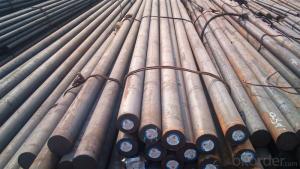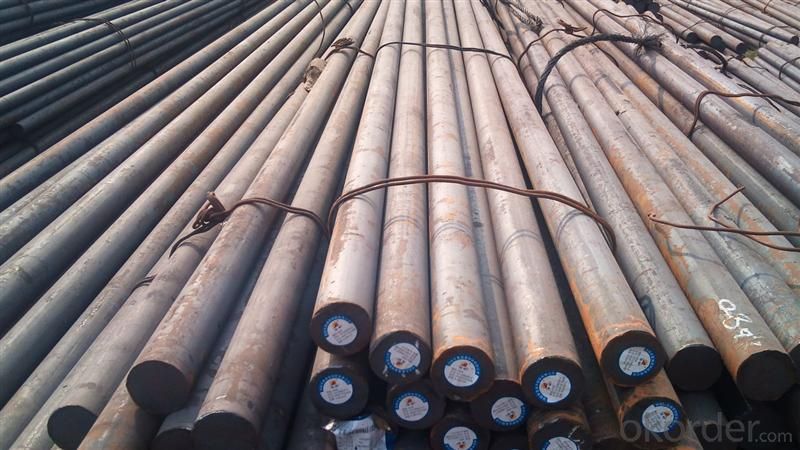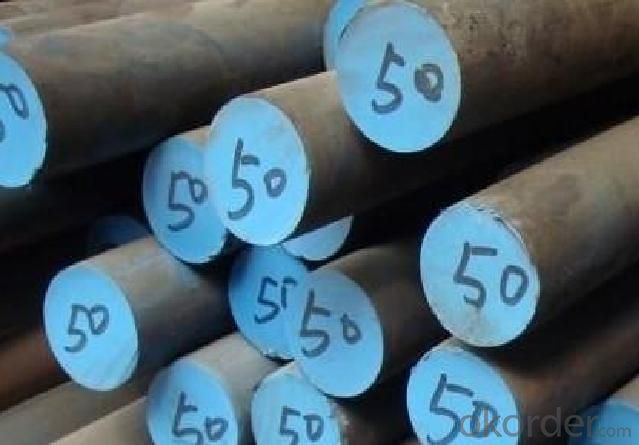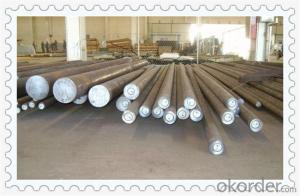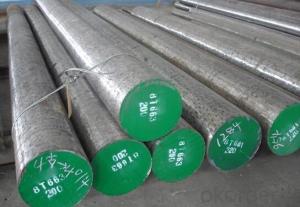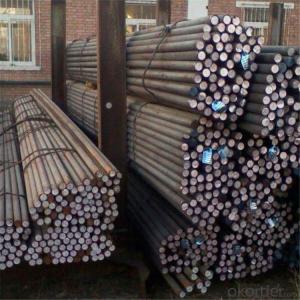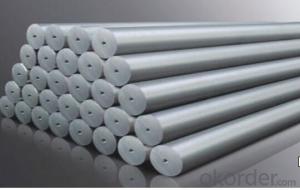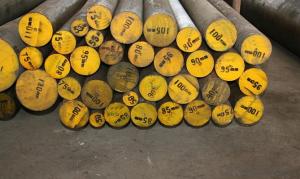ASTM 5140 Alloy Steel Bar Hot Rolled Finished
- Loading Port:
- Tianjin
- Payment Terms:
- TT OR LC
- Min Order Qty:
- 25 m.t.
- Supply Capability:
- 50000 m.t./month
OKorder Service Pledge
OKorder Financial Service
You Might Also Like
Specification
ASTM 5140 Alloy Steel Bar Hot Rolled Finished
Product Description:
Item | Alloy steel bar,alloy steel rod,steel bar,steel rod,alloy bar,alloy rod |
Standard | ASTM,AISI,SUS,GB,JIS,DIN |
Material | 10#,15#,20#,A105,1010,1015,1020,1030,S25C,S35V,1035,1050,1060,20Mn, 25Mn,30Mn,40Mn,50Mn,130,20Mn2,30Mn2,35Mn2,15Cr,15CrMo,42CrMo, 42CrMo4,34CrMo4,30CrMo,12CrMo,40Cr,35CrMo,C45,1045,4130,3140,4140, 4145,4137,5115,etc
|
Dimension | Round bar:Diameter:2-1000mm,Length:1-12m,or as required |
Flat bar:thickness:0.3-500mm,Width:2-3000mm,Length:1-12m,or as required | |
Square bar:Diameter:2*2-800*800mm,Length:1-12m | |
Angle bar:width:10*10-500*500mm,Thickness:2-150mm,Length:1-12m | |
Hexagonal bar:Diameter:4-800mm,Length:1-12m,or as required | |
Surface | polished,bright,black,coated,2b,ba,mirror,NO.4,8K |
Treatment | Hot rolled,cold drawn,Forged |
Package | Standard export seaworthy or as customers’ requirements |
Chemical Composition
Item | C | Si | Mn | P ≤ | S ≤ | Cr ≤ | Ni ≤ | Mo ≤ | Cu ≤ | |
GB/T 3077-1999 | 40Cr | 0.37-0.44 | 0.17-0.37 | 0.50-0.80 | 0.035 | 0.80-1.10 | 0.30 | 0.15 | 0.30 | |
Application:
Carbon steel rod applies to chemical industry,shipping industry,
manufacturing industry,construction,decorate industry,electric
power,pump shafts,sanitary wares,furniture handles,boiler,high
temperature resistant,low temperature resistant,corrosion resistant.
Product Show:
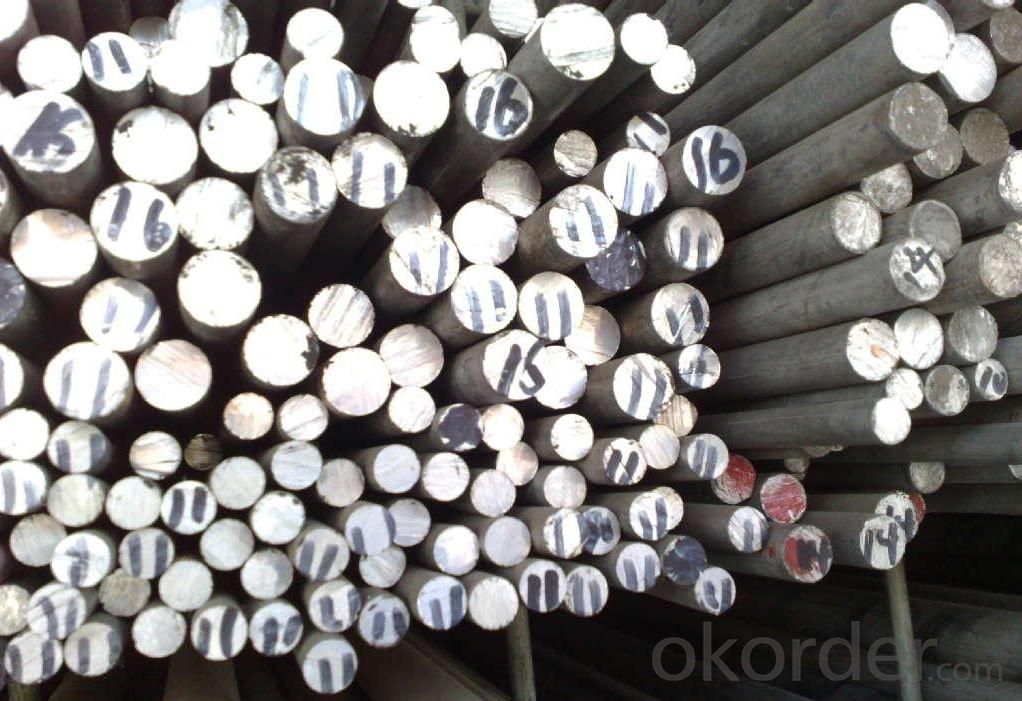
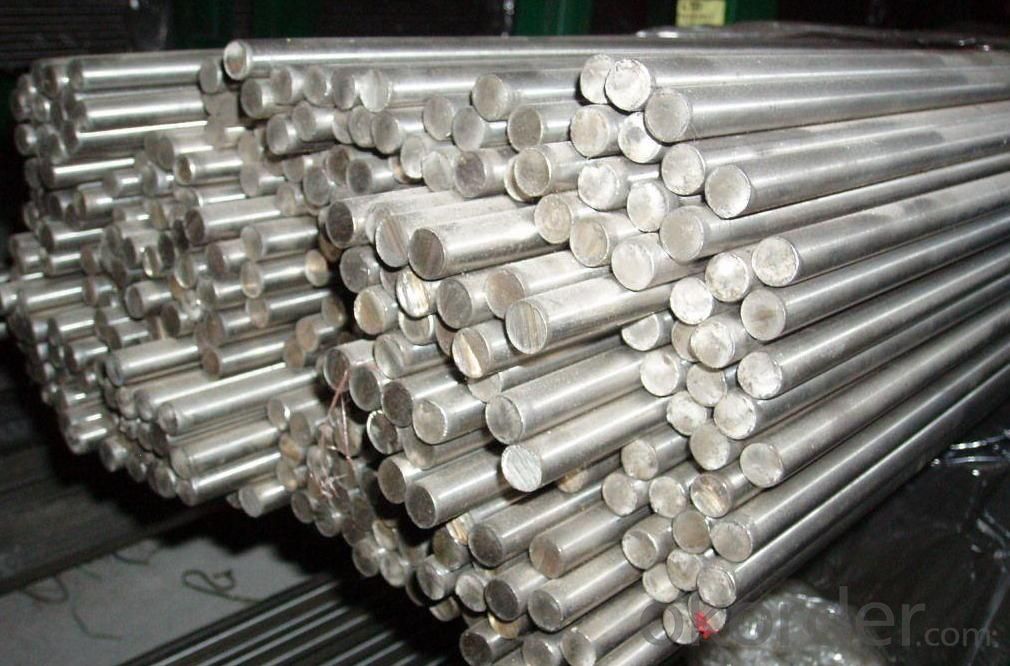
- Q: What are the applications of special steel in the agriculture supply chain?
- Special steel has various applications in the agriculture supply chain. It is commonly used in the manufacturing of machinery and equipment such as tractors, harvesters, and irrigation systems. Special steel's high tensile strength and resistance to corrosion make it ideal for these applications, ensuring durability and longevity in agricultural operations. Additionally, special steel is used in the production of storage tanks, silos, and processing equipment, providing the necessary strength and reliability for storing and handling agricultural products. Overall, special steel contributes to the efficiency and effectiveness of the agriculture supply chain by enabling the development of robust and reliable equipment and infrastructure.
- Q: How does special steel ensure product reliability?
- Special steel is specifically designed and manufactured to possess superior qualities that enhance product reliability. One of the key factors that contributes to the reliability of special steel is its exceptional strength and durability. This type of steel is engineered to withstand high levels of stress, pressure, and temperature, ensuring that it can perform reliably even in challenging conditions. Special steel also offers excellent resistance to corrosion, wear, and fatigue. This is achieved through the addition of various alloying elements and careful heat treatment processes. The enhanced resistance to corrosion and wear minimizes the risk of degradation and failure, which in turn enhances the reliability of the product. Moreover, special steel is known for its exceptional dimensional stability and accuracy. This means that it maintains its shape and size under various operating conditions, minimizing the potential for dimensional changes that could affect the overall performance and reliability of the product. Another aspect that makes special steel reliable is its consistent and uniform composition. The manufacturing process of special steel ensures that it has a homogeneous and controlled structure, which leads to predictable and reliable mechanical properties. This allows designers and engineers to accurately predict the behavior and performance of the steel, thus increasing the reliability of the final product. Furthermore, special steel is often subjected to stringent quality control measures throughout the manufacturing process. This ensures that the steel meets or exceeds industry standards and specifications. By adhering to these strict quality standards, special steel manufacturers can guarantee a high level of product reliability. In conclusion, special steel ensures product reliability by providing exceptional strength, durability, resistance to corrosion and wear, dimensional stability, uniform composition, and strict quality control measures. These features collectively contribute to the reliable performance of products made from special steel, making it a preferred choice in industries where reliability is paramount.
- Q: What are the main characteristics of spring steel?
- Spring steel is a type of high-carbon steel known for its exceptional elasticity and resilience. Its main characteristics include high tensile strength, excellent fatigue resistance, and the ability to withstand repeated bending or twisting without permanent deformation. Spring steel also exhibits good corrosion resistance, making it suitable for various applications where durability and flexibility are required, such as springs, clips, and automotive components.
- Q: What are the different magnetic grades of special steel?
- The different magnetic grades of special steel include ferritic, martensitic, austenitic, and duplex stainless steels.
- Q: How does special steel perform in high-temperature oxidation resistance?
- Special steel is specifically designed to have excellent high-temperature oxidation resistance. This type of steel contains alloying elements such as chromium, aluminum, and silicon, which form a protective oxide layer on the surface when exposed to high temperatures. This oxide layer acts as a barrier, preventing further oxidation and corrosion of the steel. The high-temperature oxidation resistance of special steel is crucial in applications where the material is exposed to extreme heat and oxidation, such as in gas turbines, heat exchangers, and furnaces. The protective oxide layer helps to maintain the integrity and strength of the steel, even under harsh conditions. Furthermore, special steel also exhibits excellent creep resistance at high temperatures. Creep refers to the gradual deformation of a material under a constant load and elevated temperatures. The unique composition of special steel provides it with the ability to resist creep deformation, enhancing its overall performance and reliability in high-temperature environments. In conclusion, special steel performs exceptionally well in high-temperature oxidation resistance due to its alloying elements and the formation of a protective oxide layer. Its ability to resist oxidation and maintain its structural integrity at elevated temperatures makes it a preferred choice for various industrial applications.
- Q: How does special steel contribute to the construction of bridges?
- The utilization of special steel is of utmost importance in the construction of bridges as it provides enhanced strength, durability, and resilience, thereby guaranteeing the structural integrity and safety of these vital infrastructure projects. One of the main advantages of special steel in bridge construction lies in its high tensile strength, allowing it to endure heavy loads and extreme weather conditions. This strength is particularly crucial in large-span bridges, where the steel must bear significant weight and withstand forces like wind, earthquakes, and traffic vibrations. Additionally, special steel offers exceptional corrosion resistance, which is essential for bridges exposed to harsh environments, such as those in close proximity to coastal areas where saltwater can be highly corrosive. By preventing or minimizing corrosion, the lifespan of the bridge is significantly prolonged, resulting in reduced maintenance and repair costs. Furthermore, special steel can be fabricated to precise specifications, allowing for the creation of intricate bridge designs and innovative structural solutions. This flexibility enables engineers to design bridges that are not only functional but also visually appealing. In conclusion, special steel is a vital element in bridge construction due to its strength, durability, corrosion resistance, and adaptability. Its utilization ensures the longevity, safety, and efficiency of bridges, ultimately benefiting the communities they serve.
- Q: How does special steel contribute to reducing product failures in high-stress applications?
- Special steel contributes to reducing product failures in high-stress applications by offering enhanced strength, durability, and resistance to wear and corrosion. Its unique composition and manufacturing processes ensure that it can withstand extreme conditions, such as high temperatures, pressure, and mechanical forces. Special steel also allows for precise engineering and design, enabling the production of components that can handle demanding environments without yielding or breaking. By utilizing special steel in high-stress applications, manufacturers can significantly decrease the likelihood of product failures, ensuring safer and more reliable performance.
- Q: What are the requirements for special steel used in metalworking tools?
- Special steels used in metalworking tools require specific characteristics and qualities to ensure their effectiveness and durability in demanding applications. Some of the key requirements for special steel used in metalworking tools include: 1. High hardness: Special steels used in metalworking tools need to have a high hardness level to resist wear and deformation. This allows the tools to maintain their sharpness and cutting edge for extended periods, resulting in efficient and precise machining operations. 2. Excellent toughness: Metalworking tools are subjected to high impact and stress loads. Therefore, special steels used in these tools must possess excellent toughness to withstand the forces encountered during cutting, drilling, or shaping operations. This toughness prevents the tool from fracturing or chipping, ensuring a longer tool life. 3. Good heat resistance: Metalworking processes generate significant heat due to friction, which can compromise the performance of the tool. Special steels used in metalworking tools should exhibit good heat resistance to minimize the risk of thermal damage, such as softening or loss of hardness, even at elevated temperatures. 4. Wear resistance: The ability to resist wear is crucial for metalworking tools as they are constantly in contact with the workpiece. Special steels used in these tools should have high wear resistance to maintain their cutting performance and dimensional accuracy over time. 5. Corrosion resistance: Metalworking tools are often exposed to harsh environments, including coolants, lubricants, and corrosive elements. Therefore, special steels used in metalworking tools should possess good corrosion resistance to prevent rusting and degradation, ensuring the longevity and reliability of the tools. 6. High dimensional stability: Special steels used in metalworking tools must exhibit high dimensional stability to ensure consistent performance. This stability allows the tools to maintain their shape and size under varying operating conditions, resulting in accurate and repeatable machining processes. 7. Machinability: Special steels used in metalworking tools should be machinable, meaning they can be easily processed and shaped into the desired tool design. This characteristic allows for cost-effective manufacturing, reducing production time and expenses. Meeting these requirements ensures that special steel used in metalworking tools is capable of withstanding the demanding conditions encountered in various metal fabrication and machining operations, providing efficient cutting, shaping, and drilling capabilities while maintaining longevity and performance.
- Q: What are the different wear-resistant grades of special steel?
- There are several different wear-resistant grades of special steel, including but not limited to, AR400, AR500, AR600, Hardox 400, Hardox 450, Hardox 500, Hardox 600, Bisplate 400, Bisplate 450, Bisplate 500, Bisplate 600, and Creusabro 4000. These grades are specifically designed to withstand abrasive wear and impact, making them ideal for applications in industries such as mining, construction, and manufacturing.
- Q: What are the different methods of surface electroplating for special steel?
- There are several methods of surface electroplating for special steel, including electroless plating, electroplating by immersion, barrel plating, and rack plating. Electroless plating is a chemical process that uses a reducing agent to deposit a layer of metal onto the steel surface. Electroplating by immersion involves immersing the steel in an electrolyte bath and applying an electric current to deposit a metal coating. Barrel plating is a method where the steel parts are placed in a rotating barrel along with the plating solution, creating a tumbling action that ensures an even coating. Rack plating involves suspending the steel parts on a rack and immersing them in the plating bath. Each method has its own advantages and is chosen based on the specific requirements and characteristics of the special steel being plated.
Send your message to us
ASTM 5140 Alloy Steel Bar Hot Rolled Finished
- Loading Port:
- Tianjin
- Payment Terms:
- TT OR LC
- Min Order Qty:
- 25 m.t.
- Supply Capability:
- 50000 m.t./month
OKorder Service Pledge
OKorder Financial Service
Similar products
Hot products
Hot Searches
Related keywords
